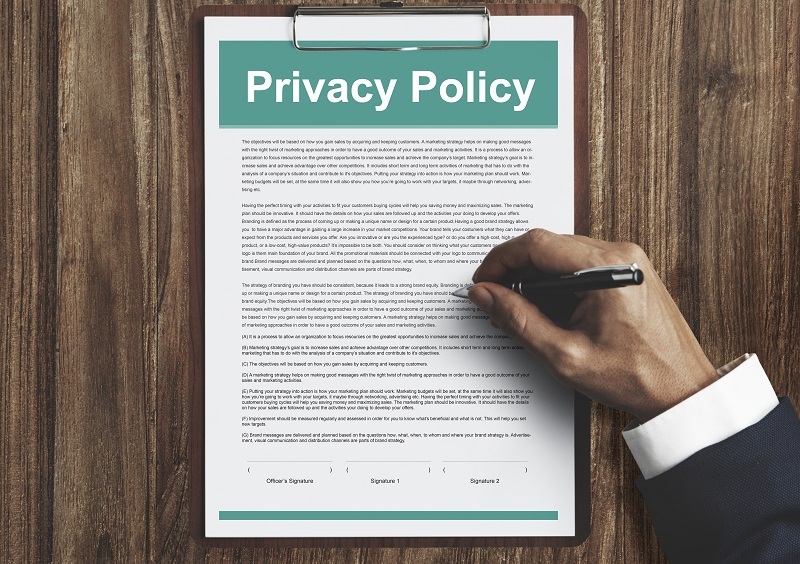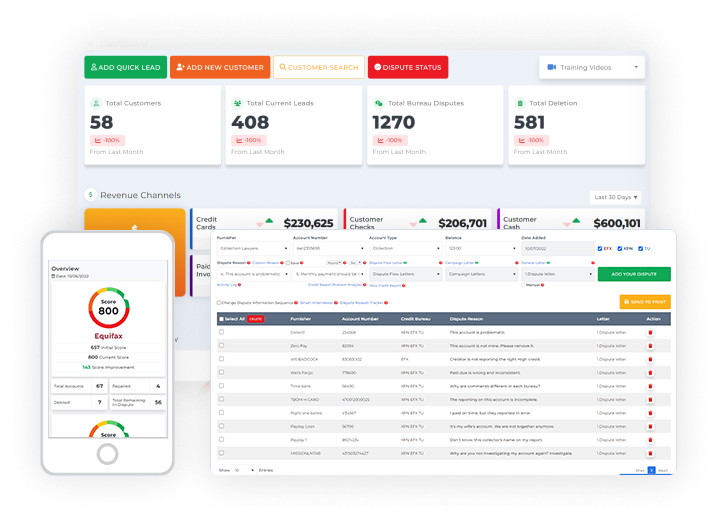Embarking on a journey to establish a credit repair business in Oregon requires navigating through a set of specific laws and regulations. In this article, we delve into the key legal requirements that aspiring entrepreneurs must be aware of.
Choose A Business Structure

You will need to determine the legal structure of your business, such as sole proprietorship, partnership, limited liability company (LLC), or corporation.
Here are some common business structures to consider and their specific implications for credit repair businesses in Oregon:
Sole Proprietorship:
This is the simplest and most common form of business structure. In a sole proprietorship, the owner has complete control of the business, but they are also personally liable for the business’s debts and legal issues.
Limited Liability Company (LLC):
An LLC is a popular choice for small businesses because it offers liability protection while still being relatively easy to set up and manage. As an LLC, the business owner’s personal assets are separate from the business’s assets, protecting them from personal liability. LLCs also offer flexibility in taxation options, such as choosing to be taxed as a partnership or corporation.
Corporation:
A corporation is a separate legal entity from its owners, offering the most liability protection. However, corporations are more complex to set up and maintain and require more extensive record-keeping and reporting. In Oregon, corporations are subject to the state’s corporate income tax.
Partnership:
A partnership is a business structure where two or more people share ownership of the business. Partnerships are relatively simple to set up and manage, but each partner is personally liable for the business’s debts and legal issues.
Register Your Business

Register your business with the Oregon Secretary of State by filing the appropriate paperwork, including Articles of Incorporation or Articles of Organization. You’ll also need to register for state and local taxes.
To register your credit repair business with the Oregon Secretary of State, follow these steps:
- Visit the Oregon Secretary of State website: Go to the Oregon Secretary of State website
- Navigate to the Business Section: On the homepage, click on the “Business” link in the top menu.
- Choose a Business Structure: Determine the legal structure of your business, such as a limited liability company (LLC), corporation, or partnership. Different structures may have different registration requirements.
- Register Your Business: For most business structures, you can register online. Click on the “Start a Business” link under the “Business” menu, then click on “Business Registration” and select the appropriate form for your business structure. For example, if you’re starting an LLC, you would click on “LLC Articles of Organization.”
- Choose and Register a Business Name: When you’re filling out the registration form, you’ll need to provide a unique name for your credit repair business. Ensure the name is not already in use by using the “Business Name Search” tool on the Oregon Secretary of State’s website. If you plan to operate under a different name (an assumed business name or “doing business as” name), you’ll need to register that as well.
- Pay the Required Fees: When submitting your registration form, you’ll need to pay the appropriate filing fees. The fees will vary depending on the type of business structure you choose.
- Obtain an EIN (if applicable): If your business structure requires it, apply for an Employer Identification Number (EIN) from the Internal Revenue Service (IRS).
After completing these steps, you should have successfully registered your credit repair business with the Oregon Secretary of State. Remember to stay informed about any changes in state laws and regulations, and consult a legal professional for the most accurate and up-to-date information.
Choose A Business Name

Pick a unique name for your credit repair business and ensure it’s not already in use. Register the name with the Oregon Secretary of State.
Check For Availability:
Before you settle on a name, check to see if the name is already in use by searching the Oregon Secretary of State’s Business Name Search tool. If the name is already taken, you’ll need to come up with a different name.
Use Descriptive and Memorable Words:
Choose a name that’s easy to remember and relevant to your credit repair business. Consider using words that describe your services or business goals.
Check For Trademark Infringement:
Do a trademark search to make sure the name you’ve chosen is not already registered or in use by another company. You can use the US Patent and Trademark Office’s (USPTO) Trademark Electronic Search System (TESS) to search for existing trademarks.
Register Your Business Name:
Once you’ve chosen a unique name for your credit repair business, register it with the Oregon Secretary of State. You can do this when you register your business entity, such as a limited liability company (LLC) or corporation.
Consider Legal Requirements:
Make sure your business name complies with state and federal laws, such as the Credit Repair Organizations Act (CROA), which prohibits deceptive or misleading names.
Get Feedback:
Consider getting feedback from colleagues, friends, or potential clients on your chosen name to make sure it’s memorable and easy to remember.
Obtain An EIN

Apply for an Employer Identification Number (EIN) from the Internal Revenue Service (IRS). This is required for tax purposes. To apply for an Employer Identification Number (EIN) from the Internal Revenue Service (IRS), you can follow these steps:
- Go to the IRS website: Visit the IRS website
- Determine Eligibility: Review the eligibility requirements to ensure you’re eligible to apply for an EIN online.
- Start The Application: Click on the “Apply for an EIN Online” link to start the application.
- Choose Your Entity Type: Select the entity type that applies to your credit repair business. Options include sole proprietorship, LLC, corporation, partnership, and more.
- Complete The Application: Provide the required information, such as your legal name and address, Social Security Number or Individual Taxpayer Identification Number, and business type.
- Verify Your Information: Review and verify the information you provided.
- Submit The Application: Submit the completed application.
- Get Your EIN: If the application is complete and accurate, the IRS will immediately assign an EIN and display it on the screen. You can then download, save, and print a confirmation notice for your records.
Alternatively, you can apply for an EIN by phone, fax, or mail. To do so, you can refer to the “Apply for an EIN” page on the IRS website and follow the instructions for the option that works best for you.
Establish A Business Bank Account

Open a separate bank account for your business to manage your finances and maintain accurate records. Establishing a business bank account for your credit repair business in Oregon typically requires the following steps and documentation:
- Choose a Bank: Research and compare different banks and their business account options to find the one that best meets your needs.
- Choose a Business Entity: Choose the business entity that you registered with the Oregon Secretary of State (such as a sole proprietorship, LLC, corporation, or partnership).
- Gather Necessary Documentation: Gather the following documentation to open a business bank account:
- Business registration documents (such as your Articles of Organization or Incorporation)
- Employer Identification Number (EIN) from the IRS
- Business license (if required)
- Identification documents (such as driver’s license or passport)
- Any additional documents the bank requires.
- Business registration documents (such as your Articles of Organization or Incorporation)
- Schedule an Appointment: Contact the bank and schedule an appointment to open a business account.
- Complete The Application Process: Complete the bank’s application process, which may include providing personal and business information, documentation, and signing the necessary agreements.
- Deposit Funds: Once your account is open, deposit funds into your account to begin using it for your credit repair business.
Obtain Necessary Licenses and Permits

You may need to obtain specific licenses and permits for your credit repair business. In Oregon, credit repair businesses are regulated by the Oregon Division of Financial Regulation (DFR).
To operate legally, you must obtain a Debt Management Service Provider (DMSP) license, which requires a completed application, background check, and fees.
To register with the Oregon Division of Financial Regulation (DFR) as a credit repair business (Debt Management Service Provider), you’ll need to follow these steps:
- Visit the Oregon DFR website: Go to the Oregon DFR website.
- Navigate to The Licensing Section: On the homepage, click on the “Licenses” link in the top menu, and then click on “Debt Management Service Provider” under the “Debt and Credit” category.
- Review the Requirements: Carefully review the licensing requirements, including application forms, fees, and other necessary documents.
- Create an Account On NMLS: The Oregon DFR uses the Nationwide Multistate Licensing System (NMLS) for managing license applications. To apply for a DMSP license, you’ll need to create an account on the NMLS website
- Submit The Application: Once you have an NMLS account, complete the application form, and submit it along with the required documentation and fees through the NMLS system. This may include background checks, financial statements, and proof of a surety bond.
- Monitor Your Application Status: After submitting your application, regularly check the status of your application in your NMLS account.
Keep in mind that the process and requirements may change over time, so always refer to the Oregon DFR website and consult with a legal professional to ensure you are following the most up-to-date procedures.
Obtain A Surety Bond

As part of the DMSP license requirements, you’ll need to obtain a surety bond. The bond amount is typically determined by the state and serves as a financial guarantee to protect your clients.
According to the statute, debt management service providers are required to obtain and maintain a surety bond of $10,000 issued by a surety company authorized to do business in Oregon. The bond must be in an amount determined by the Director of the Department of Consumer and Business Services.
The purpose of the bond is to secure the debt management service provider’s compliance with Oregon law and to provide protection for the clients of the debt management service provider. If a debt management service provider fails to comply with the law or fulfill their obligations to clients, a claim can be made against the bond.
Create A Client Contract

Develop a written contract for your credit repair services that comply with state and federal laws, including the Credit Repair Organizations Act (CROA). Consult a legal professional to ensure your contract meets all requirements.
- Services to Be Provided: Clearly specify the credit repair services that you will provide to the client, such as credit report analysis, dispute letter drafting, and credit counseling.
- Duration of the Contract: Define the duration of the contract and how the client can terminate the contract.
- Cancellation and Refunds: Outline the procedures for canceling the contract and any refund policies.
- Client Obligations: Explain the client’s obligations, such as providing accurate information and promptly responding to requests for information.
- Confidentiality and Privacy: Include provisions regarding the confidentiality and privacy of the client’s personal and financial information, and specify how you will protect that information.
- Dispute Resolution: Explain how disputes between you and the client will be resolved, including any arbitration or mediation provisions.
- Compliance with Laws: State that you will comply with all applicable federal and state laws, including the Credit Repair Organizations Act (CROA) and the Oregon Debt Management Service Provider Law.
- Governing Law: Indicate that the contract will be governed by the laws of the state of Oregon.
- Signatures: Require signatures from both parties to acknowledge their agreement to the terms of the contract.
Develop A Privacy Policy

Create a privacy policy that outlines how you’ll protect and handle your clients’ personal information. Here are some key elements to consider when developing your privacy policy:
- Purpose: Start your privacy policy with a clear statement of its purpose, such as to protect the privacy and security of clients’ personal and financial information.
- Information Collected: Explain the types of personal and financial information you collect from clients, such as names, addresses, Social Security numbers, credit card information, and credit reports.
- Use of Information: Describe how you use the information collected from clients, such as to provide credit repair services, communicate with clients, or comply with legal requirements.
- Sharing of Information: Specify whether you share clients’ information with third parties, such as credit bureaus or other service providers, and under what circumstances.
- Security Measures: Detail the security measures you have in place to protect clients’ information, such as secure data storage, encryption, and access controls.
- Rights of Clients: Explain clients’ rights regarding their personal and financial information, such as the right to access, correct, or delete their information.
- Compliance with Laws: State that your business complies with all applicable federal and state laws regarding the privacy and security of personal and financial information, such as the Gramm-Leach-Bliley Act (GLBA).
- Contact Information: Provide contact information for clients to submit requests or complaints regarding their personal and financial information.
Stay Up to Date On State And Federal Regulations

Regularly review and stay informed about any changes to state and federal credit repair laws and regulations. Here are some ways to stay informed about relevant regulations:
Government Websites:
Visit the websites of federal and state regulatory agencies, such as the Federal Trade Commission (FTC) and the Oregon Division of Financial Regulation, to stay up to date on relevant laws and regulations.
Newsletters And Alerts:
Sign up for newsletters and alerts from regulatory agencies and professional associations to receive updates on changes to laws and regulations.
Legal And Financial Professionals:
Consult with legal and financial professionals who specialize in the credit repair industry to stay informed about new laws and regulations that may affect your business.
Professional Associations:
Join professional associations related to the credit repair industry, such as the National Association of Credit Services Organizations (NACSO), to stay informed about industry trends and changes to regulations.
Networking With Peers:
Attend industry conferences and networking events to connect with peers and stay informed about changes in the credit repair industry.
Continuing Education:
Consider enrolling in continuing education courses or attending workshops related to credit repair and compliance to stay up to date on regulatory changes and best practices.
Remember, laws and regulations can change frequently, so it’s important to stay vigilant and seek guidance from experts in the industry to ensure compliance.
Ready to start your credit repair business in Oregon?
Make sure you are informed and compliant with the latest state laws.
Click now to learn more.
By familiarizing yourself with the laws for starting a credit repair business in Oregon, you’ve taken a crucial step toward building a successful and reputable enterprise. As you move forward, make sure to prioritize compliance, transparency, and providing valuable services to your clients.
By doing so, you’ll contribute to the financial well-being of individuals and families in Oregon while positioning your business for long-term success in this dynamic industry.
Bonus: Now that you have read this article, why not take your new skill and start your own credit business helping others? We have free training that can help you do just that.



